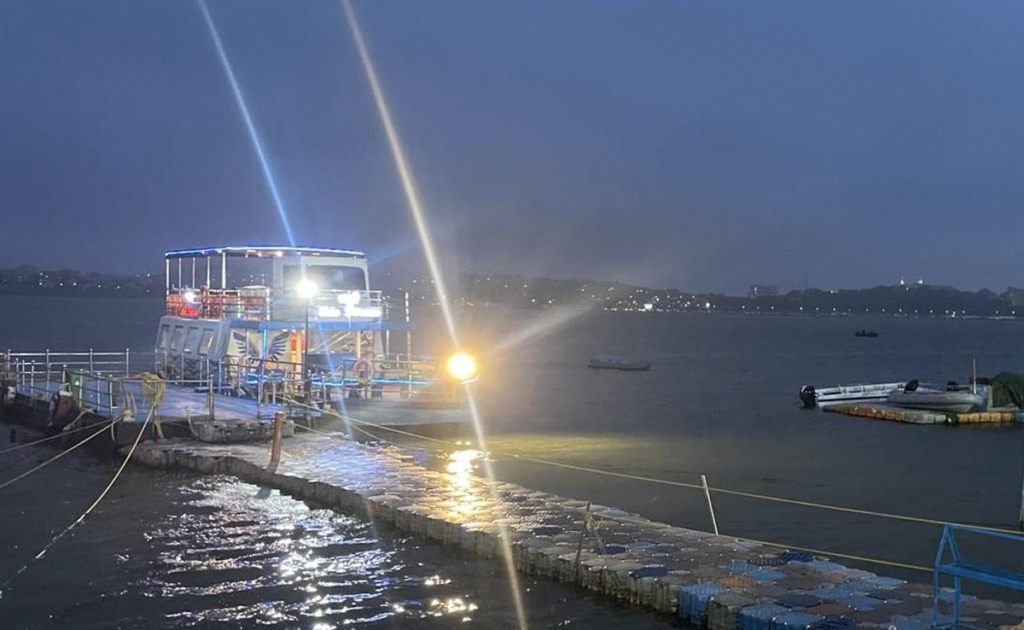

The Upper Lake is an important source of drinking water for Bhopal.
BHopal:
The National Green Tribunal has ordered that cruise boats and other motor propelled boats stop operating in the Upper lake in Bhopal. The order came after environmentalist Subhash Pandey approached the tribunal, highlighting that a cruise vessel has been permitted in the “Bhoj wetland” by the Madhya Pradesh government.
The wetland is also a Ramsar site with international importance and has two lakes — Upper lake, also called Bhojtal (Bada Talaab) and Lower Lake or Chhota Talaab.
Spread over about 31 km, the Upper Lake is an important source of drinking water for the city. About 12 lakh people of Bhopal are dependent on this water body.
Upper Lake also has a great importance when it comes to local climate, vegetation, ground water depletion and ground water contamination of the surrounding area.
It has more than 15 kinds of fishes and several vulnerable species including turtles, amphibians and aquatic invertebrates.
More than 2,500 migratory birds from across the world used to come regularly to this wetland for breeding and dispersal of seeds, leading to maintenance of biodiversity along their routes.
The tribunal said no permanent construction will be allowed within the “Zone of Influence” of water bodies/wetlands and if any permanent construction has been raised, it be demolished.
Dr Subhash C Pandey, an environmentalist, had alleged serious damage and deterioration at the “Bhoj Wetland” and other water bodies due to operation of motorised boats and cruise boats.
He also said small cruise vessels with passengers act as floating colonies that pollute water bodies with sewage, waste water and other contaminants. A mid-sized cruise vessel can consume 150 tonnes of fuel each day and dump toxic waste in water.
In the Bhopal Master Plan, 2005, it was said that no recreational activities should be permitted in the water of Upper Lake since it is fundamentally used for drinking. Recreational activities may adversely affect the quality of water.
Even so, the Madhya Pradesh Tourism Board has started organising cruises in rivers, lakes and water bodies, which mainly comprise river Narmada and its tributaries.
(This news is published through a syndicated feed courtesy NDTV)



